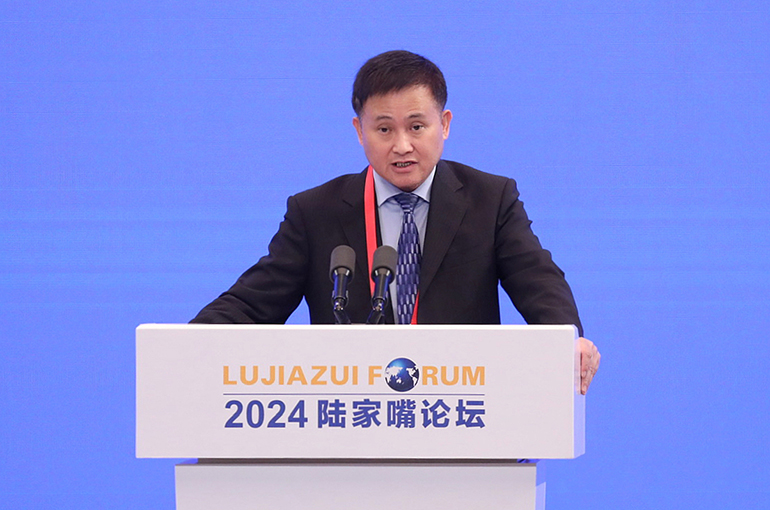 Bond Trading by China's Central Bank Wouldn't Be QE, Governor Says
Bond Trading by China's Central Bank Wouldn't Be QE, Governor Says(Yicai) June 19 -- Including treasury bond trading in the monetary policy toolbox does not mean quantitative easing but positions it as a basic monetary delivery channel and liquidity management tool, creating a suitable liquidity environment with other tools, according to the governor of the People's Bank of China.
Global inflation has cooled down since the start of this year but remains severe, Pan Gongsheng said at the two-day Lujiazui Forum today regarding China's monetary policy stance. Some central lenders, such as the European Central Bank, have started cutting interest rates, while others are still watching and may lower rates later this year, but they generally maintain a high-rate and restrictive monetary policy stance, he added.
The reality in China is different, and the stance of monetary policy is supportive, providing financial support for sustained economic recovery, Pan noted.
Regarding the total amount of monetary policy, the PBOC has comprehensively used a variety of monetary policy tools, including the lower reserve requirement ratio, policy interest rate, and the interest rates in the financial market, such as the loan prime rate, to create a good monetary and financial environment for high-quality economy, Pan said.
Regarding exchange rates, the monetary policies of major economies have gradually shifted this year, according to Pan. The momentum of US dollar appreciation has weakened, and the gap between domestic and foreign monetary policy cycles seems to have narrowed, he added.
These factors are conducive to maintaining the basic stability of the Chinese yuan exchange rate, the balance of cross-border capital flows, and expanding the operational space of China's monetary policy, Pan said. The PBOC adheres to the decisive role of the market in the formation of the exchange rate and keeps it flexible while strengthening the guidance of expectations and firmly preventing the risk of it overshooting, he noted.
Pan also addressed measures to regulate credit markets. In the short term, these measures will have a "squeezing" effect on the financial aggregate, but they do not change the monetary policy stance and instead help improve the efficiency of monetary policy transmission, Pan pointed out.
The measures are conducive to balancing the pace of credit growth, alleviating the distortion of resource allocation, reducing capital idling arbitrage, and preventing and resolving financial risks, Pan said. They also contribute to high-quality financial services for the economy and society and the healthy development of financial institutions and markets, he added.
Regarding the PBOC's continuous promotion of market-oriented reform for interest rates in recent years, Pan believes that the interest rate formation, regulation, and transmission mechanism has nearly been set up. The central bank can explicitly take a short-term operating interest rate as the main policy interest rate in the future, while the seven-day reverse purchase rate assumes this function now, he noted.
Interest rates on other maturities monetary policy tools can dilute the policy rate, Pan pointed out.
Pan also encouraged the construction of Shanghai as an international financial center and foreign-funded financial institutions and international financial organizations to settle in the city.
The Shanghai Regional Center of the International Monetary Fund opened today. According to Pan, the IMF is an important international financial institution, and the new regional center will deepen its cooperation with China, enhance macroeconomic policy exchanges and coordination among countries in the Asia-Pacific region, and promote global and regional financial stability.
Editor: Martin Kadiev